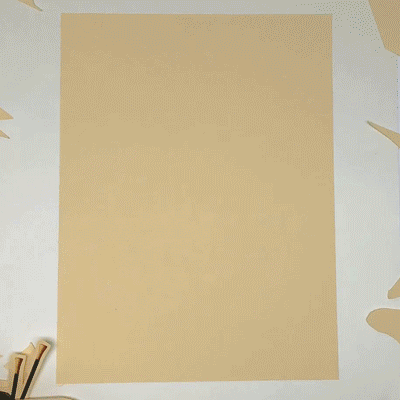

The new year is the perfect time to finally take up ceramics, learn Mandarin, start a book club, start rock-climbing, or plant a garden. In 2018, the Cut has practical advice on trying something new. Make bowls, not just resolutions.
I am a daughter of the Midwest, practically born with a glue gun in my hand. My mother and grandmother, tasked with most of the domestic duties in their homes, employed the sort of practical creativity that can turn drudgery into art. They make mittens out of old sweaters and whip up party-ready appetizers from blocks of cream cheese. And despite being averse to defining myself by my home-keeping skills, I’ve adopted some of their domestic traditions. I spend my free time altering clothes and making pizza dough and shibori-dyeing swaddle blankets for my friends’ babies. It’s a handed-down hobby you might call “general craftiness.”
Lately, I’ve found a new outlet: over-the-top deviled eggs. Buffalo deviled eggs, with Frank’s Hot Sauce and crumbled blue cheese. Miso deviled eggs, garnished with pickled ginger and scallion. A Bloody Mary version with tomato paste, horseradish, celery slices, and a bit of cornichon. And a dozen other variations—some, admittedly, more successful than others. For the past few years, I’ve been bringing these eggy experiments with me to barbecues and potlucks, where, through a mouthful of mayonnaise, someone will suggest that I start a deviled-egg catering business. It is a tempting idea (I could call the business “She-Deviled”!). And I know that people are suggesting egg-entrepreneurship as a compliment—their way of saying, “These are so good I would pay for them!”—but I take the implication seriously. At a time when Etsy shops and craft fairs and food trucks are decidedly mainstream, every domestic hobby is at risk of becoming a side hustle. I don’t want to boil and slice eggs for money. Messing around with a stand mixer or a sewing machine is fun for me because it’s not work. Personal pleasure is what makes a hobby a hobby.
It can be surprisingly tricky to remember this, though. “Hobbies are a contradiction,” writes Steven Gelber in Hobbies: Leisure and the Culture of Work in America. “They take work and turn it into leisure, and take leisure and turn it into work … Hobbies occupy the borderland that is beyond play but not yet employment.” Half of millennials have a side gig because they can’t find a full-time job that will pay them a living wage, or because a side hustle is what’s required to break into their desired field. But once you’ve decided to monetize a leisure activity, it can be hard to go back. One of my friends started selling crocheted vulvas during a time in her life when her nonprofit job was severely underpaying her. “It went from a funny hobby to something I felt I had to do until my hands turned into claws,” she told me. Eventually, she found a better job and put her crochet needles away. Friends occasionally still ask her to make one for them. She always declines. “Totally ruined it for me,” she says.
If monetizing can take the joy out of anatomically correct crochet, what can’t it ruin? That’s why I’m keeping my deviled-egg hobby unspoiled. Recently, my mother, who counts embroidery among her many hobbies, made me a hand-stitched tea towel that features an anthropomorphized egg wearing glasses (?!) and devil horns. I am pleased to report that it will never be the logo for a business.




